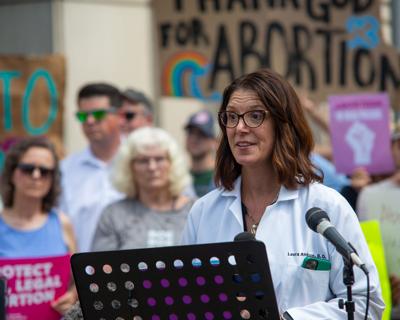Tennessee doctors who provide abortions during a medical emergency to protect the life of the mother will not be punished, a three-judge panel ruled on Thursday in Davidson County Chancery Court.
The judges determined that an abortion is permitted in the following conditions: premature rupture of the amniotic sac that surrounds the fetus; fatal fetal diagnoses that result in severe preeclampsia or mirror syndrome associated with fetal hydrops; and fatal fetal diagnoses leading to an infection that will result in uterine rupture or potential loss of fertility, in addition to inevitable abortions.
“This lack of clarity is evidenced by the confusion and lack of consensus within the Tennessee medical community on the circumstances requiring necessary health- and life-saving abortion care,” the ruling states. “The evidence presented underscores how serious, difficult, and complex these issues are and raises significant questions as to whether the medical necessity exception is sufficiently narrow to serve a compelling state interest.”
Under the ruling, physicians will not face disciplinary actions from the Tennessee Attorney General’s office and the Tennessee Board of Medical Examiners. However, the chancery court does not have the jurisdiction to block the criminal statute under which physicians could face a felony charge and prison sentence as high as 15 years.
Tennessee’s nearly total abortion ban remains intact — and the DCS is now prohibited from requiring immunizations for foster parents
The Center for Reproductive Rights and a New York-based legal firm brought the case in September 2023 on behalf of three patients and two physicians in Tennessee, as well as other cases in Idaho and Oklahoma. The suit asked the state court to clarify what circumstances qualify for the medical exception to the abortion ban — something local providers, including Dr. Laura Andreson, who is part of the suit, have been advocating for from the beginning. (Anderson is now running for office in state House District 63.) More plaintiffs joined in January.
Tennessee is under a nearly total abortion ban that until Thursday’s ruling permitted abortions only in cases of molar and ectopic pregnancies and for physicians to use “reasonable medical judgment.” During the 2024 legislative session, some legislators sought to introduce allowances for abortions in cases of rape and incest and for those younger than 14. They were shut down. Additional planned legislation to allow for abortions in cases of fatal fetal anomalies and other serious medical conditions was never brought.
Judge gives temporary injunction, citing infringement of free speech
“The State’s position from the outset has been that Tennessee’s Human Life Protection Act allows pregnant women to receive all necessary care to address serious health risks,” Attorney General Jonathan Skrmetti said in a statement. “The court’s limited injunction order mirrors that understanding. We all agree that doctors should save lives and protect their patients.”
Earlier this year, some legislators successfully passed a bill that would make it illegal for an adult to take a child out of state for an abortion without parental permission. The “abortion trafficking” law was recently temporarily blocked for infringing on the First Amendment right to free speech following a lawsuit brought by state Rep. Aftyn Behn (D-Nashville) and abortion fund member and attorney Rachel Welty.
This article was first published via our sister publication, the Nashville Post.







